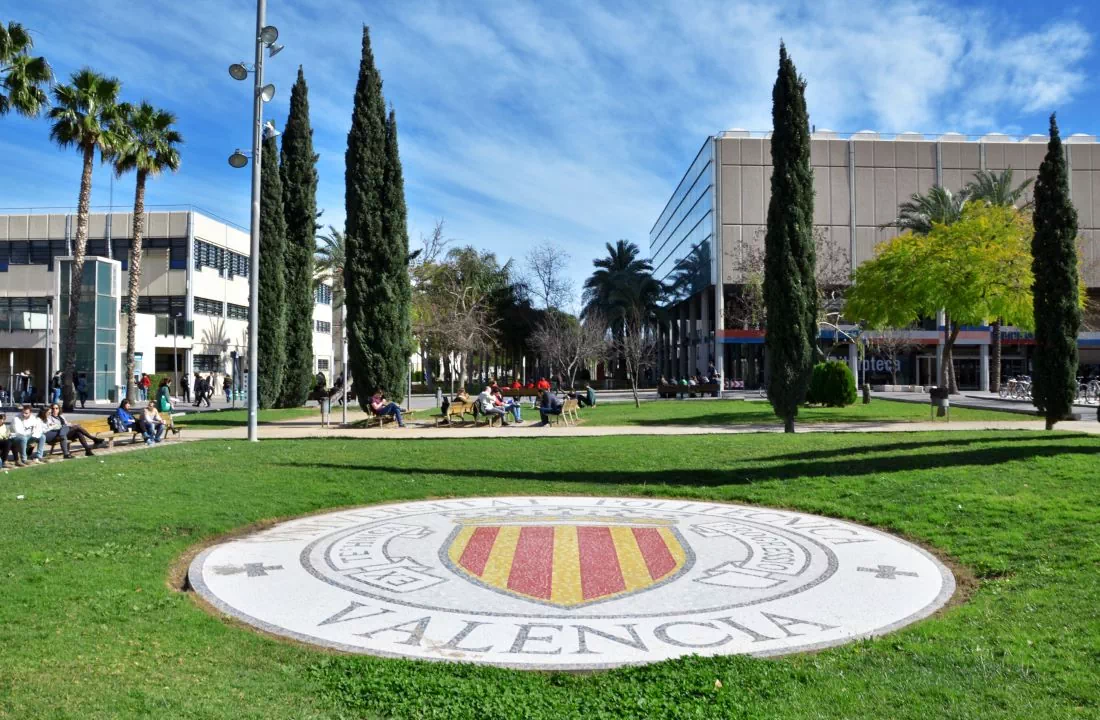Spain, a country known for its rich culture, beautiful beaches, and Mediterranean charm, is also home to some of the world’s most prestigious educational institutions.
In this article, we’ll explore the top 10 universities in Spain, highlighting their unique strengths and contributions to global higher education. These world-class universities offer exceptional academic and professional development opportunities, making Spain a great destination for international students.

How We Ranked the Best Spanish Universities
Spanish universities have been making significant strides in QS world university rankings, cementing their position among the best global universities. With a blend of historical significance and modern innovation, these institutions offer international students an unparalleled academic experience.
Our ranking criteria consider factors such as research performance, teaching quality, international outlook, and employer reputation.
10 Best Universities in Spain
1.Universidad Complutense de Madrid (Complutense University of Madrid)

Photo by Universidad Complutense de Madrid
Founded in 1293, the Complutense University of Madrid is one of the oldest universities in the world. Its historical significance is matched by its current research output and international collaborations.
Notable for its comprehensive range of programs, Complutense University excels particularly in fields such as medicine, physics, and humanities.
2.Universitat de Barcelona (University of Barcelona)

Photo by Universitat de Barcelona
Consistently ranked among the best universities in Spain, the University of Barcelona boasts a high reputation for academic excellence. With key faculties spanning natural sciences, social sciences, economics, and humanities, it’s one of the biggest universities in the country.
Its central location in Barcelona, a top student city known for its diverse experiences, traditions, and academic opportunities, adds to its appeal.
3.Universidad Autónoma de Madrid (Autonomous University of Madrid)

Photo by Universidad Autónoma de Madrid
The Autonomous University of Madrid is renowned for its research excellence and strong international partnerships. It has produced numerous distinguished alumni, including Nobel laureates.
The university's commitment to innovation and interdisciplinary studies makes it a favorite among students and academics alike.
4.Universitat Autònoma de Barcelona (Autonomous University of Barcelona)

Photo by Universitat Autònoma de Barcelona
With three campuses in close proximity to Barcelona, the Autonomous University of Barcelona offers a multicultural environment and a strong focus on sustainability.
Its innovative approach to education and entrepreneurship has earned it recognition as one of Europe's most dynamic young universities.
5.Universidad de Granada

Photo by Universidad de Granada
Situated in a city that’s one of the UNESCO World Heritage sites, the University of Granada blends cultural heritage with modern facilities.
It’s a popular destination for study abroad programs, especially for language courses. The university is also known for its unique programs in fields like translation and water management.
6.Universitat Pompeu Fabra

Photo by Universitat Pompeu Fabra
As a young university, Pompeu Fabra has quickly established itself as a leader in social sciences and humanities. Its strong industry connections contribute to high employability rates for graduates.
Located in Barcelona, it offers students the opportunity to study in one of Europe's most vibrant cities.
7.Universidad Carlos III de Madrid

Photo by Universidad Carlos III de Madrid
With a strong focus on technology and bilingual education, Universidad Carlos III de Madrid stands out for its modern approach to higher education.
Its close ties with industry ensure students gain practical experience through internships and collaborative projects, particularly in fields like computer science and engineering.
8.Universitat Politècnica de València

Photo by Universitat Politècnica de València
As a technical university, this institution excels in engineering and technology. Its cutting-edge research facilities show its commitment to innovation and knowledge transfer.
Students interested in studying civil engineering or applied sciences will find world-class resources here.
9.Universidad de Navarra

Photo by Universidad de Navarra
This private institution has gained international recognition, particularly for its business and management programs. Its business school is consistently ranked among the best in Europe. The university's global outlook is reflected in its diverse student body and numerous international accreditations.
10.Universidad de Salamanca

Photo by Universidad de Salamanca
As the oldest university in Spain, founded in 1218, the University of Salamanca offers a unique blend of historical significance and modern education. It’s especially renowned for its language and cultural programs, attracting students from all over the world who wish to immerse themselves in Spanish language and culture.
Rovira i Virgili University is also highly regarded, particularly in specific subject rankings such as Dentistry.
Factors to Consider When Choosing a Spanish University
When selecting a university in Spain, international students should carefully weigh several important factors to ensure they make the best choice for their academic and personal goals. Here are some key considerations:
Language of Instruction
While many Spanish universities now offer programs taught entirely in English, especially at the postgraduate level, proficiency in Spanish can significantly broaden your options and enhance your overall experience.
- English-taught programs: These are increasingly common, particularly in fields like business, engineering, and international relations. They're ideal for students who aren't fluent in Spanish but want to study in Spain.
- Spanish-taught programs: These offer a more immersive experience and are typically more numerous. They also tend to be less expensive than English-taught alternatives.
- Bilingual programs: Some universities offer bilingual degrees, with courses taught in both English and Spanish. These can be an excellent option for students looking to improve their Spanish while studying in their native language.
- Language support: Many universities offer intensive Spanish courses before and during the academic year to help international students improve their language skills.
Cost of Living and Tuition Fees
The cost of studying in Spain can vary significantly depending on the city, university, and program you choose.
- Tuition fees: Public universities in Spain generally have lower tuition fees compared to private institutions. EU students typically pay the same fees as Spanish students, while non-EU students may pay higher rates.
- Living expenses: Cities like Madrid and Barcelona tend to have a higher cost of living compared to smaller cities or towns. Consider costs for accommodation, food, transportation, and leisure activities.
- Student discounts: Many cities offer student discounts on public transportation, museums, and other services, which can help reduce overall costs.
- Part-time work: International students in Spain are allowed to work part-time (up to 20 hours per week) alongside their studies, which can help offset living expenses.

Admission Requirements
Each university in Spain has its own set of admission requirements for international students. These may include:
- Academic qualifications: A high school diploma or equivalent for undergraduate programs, or a bachelor's degree for postgraduate studies.
- Entrance exams: Some universities may require specific entrance exams, especially for certain programs like medicine or engineering.
- Visa requirements: Non-EU students will need to obtain a student visa before arriving in Spain. This process can take several months, so it's important to start early.
- Health insurance: Proof of comprehensive health insurance coverage is typically required for international students.
Scholarship Opportunities
Many Spanish universities and external organizations offer scholarships to attract top international talent:
- University-specific scholarships: Many institutions offer their own scholarships based on academic merit, financial need, or specific fields of study.
- Government scholarships: The Spanish government offers various scholarship programs for international students, such as the MAEC-AECID scholarships.
- Erasmus+ program: For EU students, the Erasmus+ program provides opportunities to study in Spain with financial support.
- External scholarships: Various organizations and foundations offer scholarships for international students to study in Spain.
- Research grants: For postgraduate students, there are often opportunities for research grants and assistantships.
Academic Reputation and Specializations
Consider the university's overall reputation and its strength in your specific field of study:
- Global and national rankings: Look at how the university performs in international rankings and subject-specific rankings.
- Research output: For research-intensive programs, consider the university's research performance and facilities.
- Industry connections: Some universities have strong links with industry, which can be beneficial for internships and future employment opportunities.
Student Life and Support Services
The quality of student life can significantly impact your overall experience:
- International student services: Look for universities with robust support systems for international students, including orientation programs, language support, and cultural integration activities.
- Accommodation options: Consider whether the university offers on-campus housing or assistance in finding off-campus accommodation.
- Extracurricular activities: Check what clubs, sports teams, and other activities are available to enhance your university experience.
- Career services: Universities with strong career support can help with internships, job placements, and career guidance.
Choose the Best Spanish University For You
Spain's top universities offer world-class education across various disciplines, from medicine and engineering to humanities and social sciences. Whether you're drawn to the historical campuses of Madrid and Salamanca or the Mediterranean allure of Barcelona and Valencia, studying in Spain provides a unique blend of academic excellence and cultural richness.
The future looks bright for Spanish higher education, with universities continuing to climb in global rankings and attract students from around the world. For prospective students considering studying abroad, Spain's top universities offer an excellent option to gain a high-quality education while experiencing one of Europe's most vibrant cultures.
FAQs about Studying in Spain
A. Visa requirements:
Non-EU students will need to obtain a student visa before arriving in Spain.
B. Part-time work opportunities:
International students are allowed to work part-time while studying, subject to certain restrictions.
C. Healthcare for international students:
Students are required to have health insurance coverage during their stay in Spain.
D. Post-graduation employment prospects:
Spain offers opportunities for international students to stay and work after graduation, particularly in fields like technology and business.
Studying in Spain offers more than just academic growth. It's an opportunity to immerse yourself in a new culture, learn a new language, and gain a global perspective. From the bustling streets of Madrid to the beautiful beaches of the Mediterranean sea, Spain provides a diverse and enriching environment for students from all over the world.
Whether you're interested in leading research, traditional academic disciplines, or innovative new fields of study, Spain's top universities have something to offer.
So why not consider Spain for your higher education journey? With its combination of academic excellence, rich culture, and fantastic quality of life, it could be the perfect destination for your studies.




